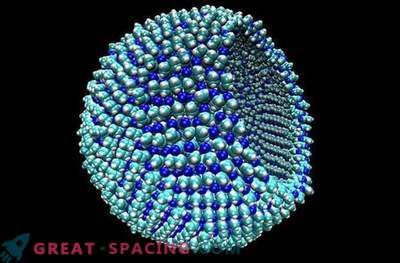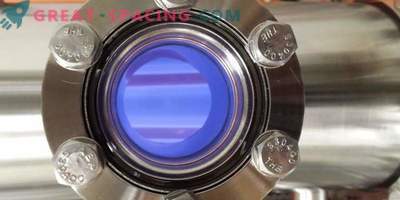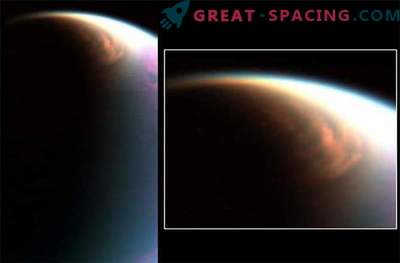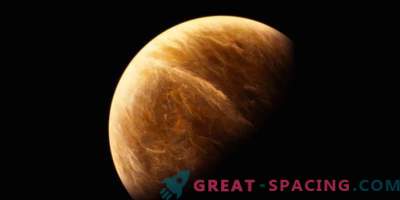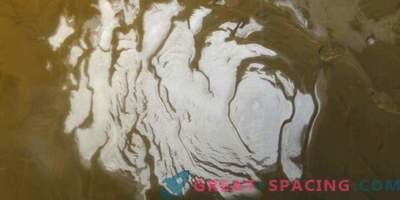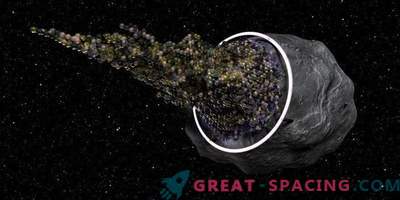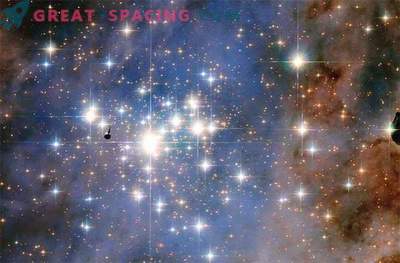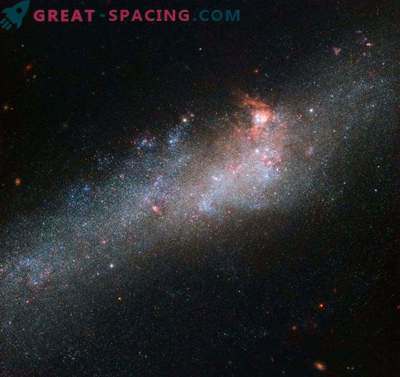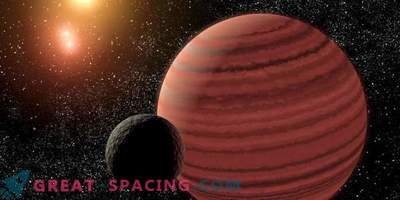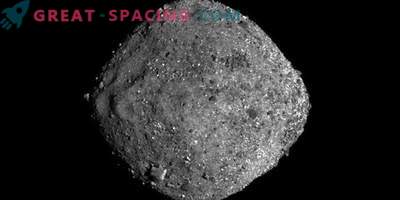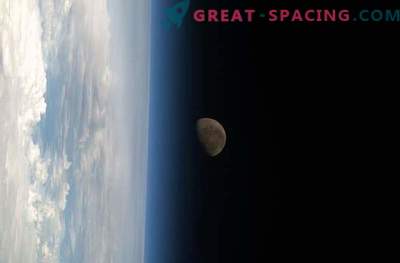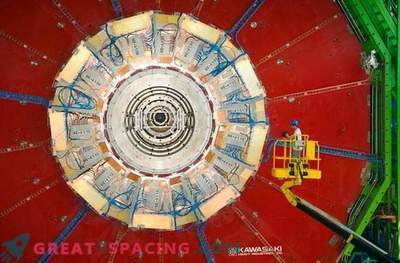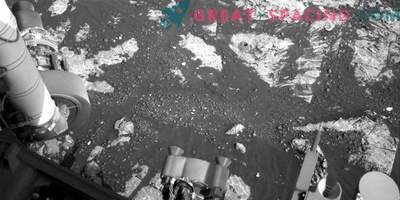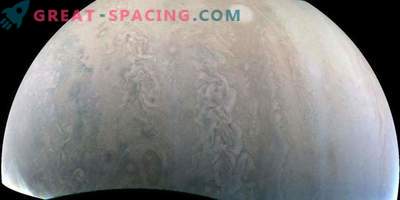
NASA scientists have confirmed the presence of vinyl cyanide in Titan's atmosphere, which is an organic compound, potentially capable of providing cell membranes for microbial life in the large-scale methane oceans of the moon. If so, then we will get evidence that life develops without H 2 O.
Terrestrial cell membranes consist of phospholipids - molecular chains with phosphorous oxygen heads and carbon chain tails. They bind and form a flexible membrane in water. Estimated life in methane requires an alternative version of terrestrial phospholipids. If it is, then scientists will get a wider range of planets to search for life.
For the first time, the presence of vinyl cyanide in Saturn’s satellite was proposed by the Cassini spacecraft. Further studies were performed using ALMA archive data. Substance noticed in the atmospheric layer of Titan at an altitude of 200 km. The greatest concentrations were above the south pole.
At low temperatures (-179 ° C) organic molecules in the atmosphere form droplets. They descend and fill methane lakes, recalling the pattern of the earth’s cycle of water circulation. Therefore, they are able to create simple microscopic life forms. Modeling has shown that a sufficient amount of vinyl cyanide is present in the northern lake of the moon to create approximately 10 million cells per cm 3.

The most northern giant lake of Titan - Sea of Liegei. It contains enough vinyl cyanide to create cell membranes.
You still need to prove that vinyl cyanide is capable of creating life, but scientists hint at a good prospect. Phosphorus and oxygen found in the membranes of terrestrial cells do not exist in Titan's cold methane oceans, therefore any cell membranes must be based on nitrogen, hydrogen and carbon (they are all on satellite). The model showed that vinyl cyanide is a molecule capable of forming a stable and flexible membrane.
However, the possible life will have to face harsh conditions. Researchers note that Titan remains an interesting object for studying the boundaries of possible biochemistry for the creation of life.
